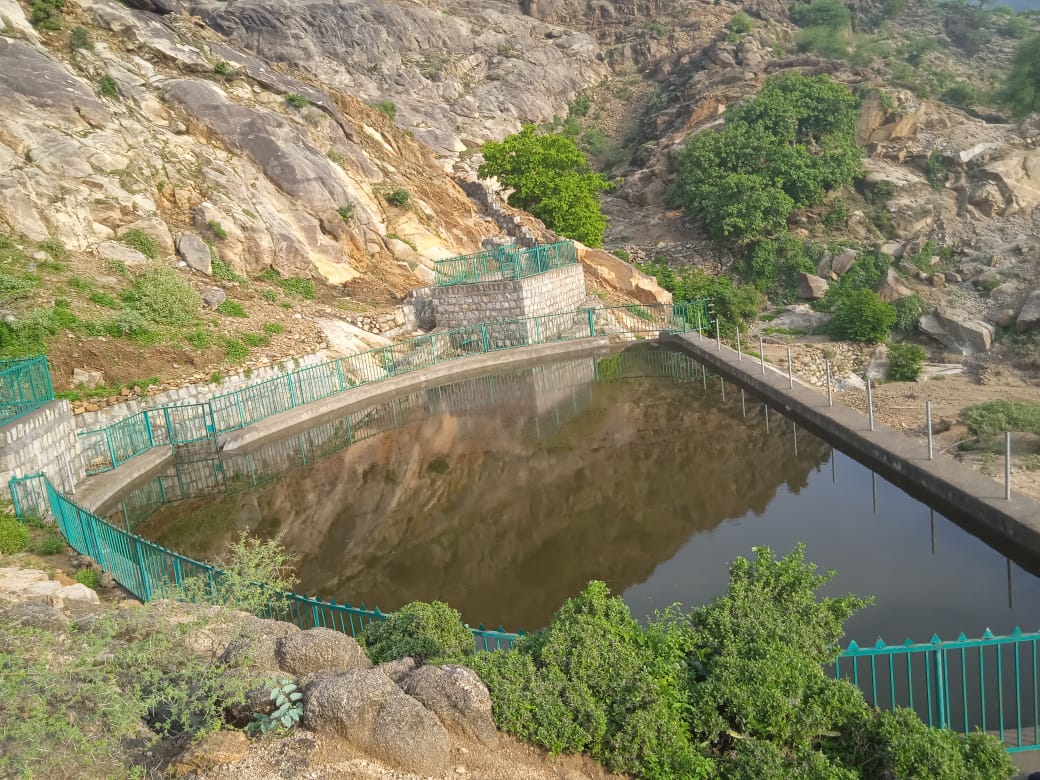The scarcity of clean and safe household water has been a key challenge in most areas of Yemen, particularly rural regions. Collecting water for household needs requires long journeys, often lasting hours, a hardship that falls primarily on children and women throughout the year. During the dry season, when springs run dry and well water recedes, this hardship becomes even more severe.
Residents of Sabah in Abyan, Al-Jaibel in Raymah, Qalansiya in Socotra, and Munabeh in Sa’adah all face the daily challenge of providing water for their homes. Traditional sources such as springs and private wells, though some distance from residences, are generally reliable during the rainy season; however, during periods of drought, water becomes extremely scarce, sometimes unavailable altogether. Meanwhile, private artesian wells supply very limited quantities of free water, often insufficient even for basic drinking and cooking needs for a single household. Consequently, residents are forced to forego personal hygiene, laundry, and sanitation, as alternative water sources are largely unaffordable, with the cost of a single water tanker delivery ranging from YER20,000 -YER30,000- way beyond the means of most households - given the difficult living conditions faced by most Yemenis.
A Common Hardship
The loss of rainwater, which is allowed to run off without being collected or stored for times of need, has long been a challenge. PWP has continually sought practical solutions to ease this burden in a feasible manner. It has been building rainwater harvesting tanks of various types to solve this problem, especially in the countryside where the problem is more acute. These interventions serve the communities and are considered a sustainable source during times of drought – supply water free of charge. Seeing the feasibility of such projects, communities in Sabah in Abyan, Al-Jaibal in Raymah, Qalansiya in Socotra, and Munabeh in Sa’adah made rainwater harvesting tanks and reservoirs their number one priority. These communities share common challenges in living conditions and have difficulty accessing sustainable and reliable water sources. Addressing this challenge has brought relief and satisfaction to households in these areas and spared women and children the daily hardship of fetching water from distant areas.
A Safe Life
Rainwater harvesting provides a secure and healthy life for hundreds of poor families in rural and remote areas. These projects protect communities from waterborne diseases caused by contaminated water, enable better personal hygiene, and allow children to attend school regularly. Women, previously forced to spend much of their day collecting water, can now devote this time to productive activities that benefit their families.
Clean Water for the Residents of Lawdar and Beit Al-Faqih in Abyan and Al-Hodeidah Governorates
Families in Lawdar District, Abyan and the outskirts of Beit Al-Faqih, Hodeidah, suffer from a lack of a source for clean and safe household water, despite the presence of artesian wells in both areas. However, the antiquated and neglected water conveyance and distribution networks, which have not been maintained for over 30 years, along with the lack of home water storage tanks, lead to a constant struggle for water by the residents of the two areas. The alternative is to buy water tankers, but this is an expense most households cannot afford to make every ten days on average. The only other options would be women and children have to fetch water from distribution points at the well, carrying it home on their heads or by donkeys - a burdensome daily task.
Connected Water
Dozens of women and children in these two areas make daily journeys with their animals to fetch water for their households. Most families live below the poverty line and cannot afford to purchase water, despite the availability of government- built water wells. The main obstacles are the deteriorating transport and distribution networks and the absence of a reservoir to store and distribute water to the beneficiary areas. Implementing a water tower project with a new conveyance and distribution network was the most practical solution that would alleviate residents' hardship, improve living conditions, and provide safe, reliable water for domestic use.
PWP remains committed to identifying and addressing the urgent needs of people, particularly regarding water provision for families in Al-Suway’i, Lawdar District, Abyan and the outskirts of Beit Al-Faqih, in Hodeidah Governorate. where they faced the same struggle.
Testimonies by Beneficiaries
Izzat Hamed Sa’ad, a beneficiary of the Beit Al-Faqih water project in Hodeidah Governorate, says: “Women and children used to walk an average of 35 minutes each morning to the nearest water well, and even then, access was limited. During diesel shortages, water would be cut off for days, causing great hardship for our families and even affecting our livestock.”
He adds: “Following the implementation of the water tank and distribution pipeline project, water now reaches many homes, improving people’s living conditions and personal hygiene, and eradicating diseases caused by contaminated water. Additionally, there are now water distribution points accessible to everyone.”
Izzat Mahmoud Suleiman, a beneficiary of the Suway’i water tank project in Abyan, concurs: “Public health in the area has improved significantly compared to the situation prior. Women have taken up tailoring, embroidery, and other handicrafts, while children now attend their classrooms regularly.”




